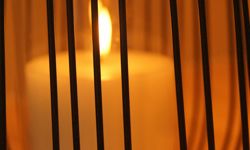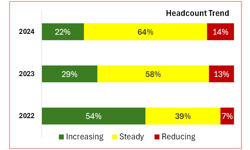Mr Isaak (pictured), who has dual Eritrean-Swedish citizenship, was imprisoned following a September 2001 suppression of the independent media in Eritrea, one of the worst countries in the world for press freedom. The country has no private newspapers, radio or television stations.
Mr Isaak, who turned 46 on Wednesday (27 October), has not been formally charged with any crime, and his whereabouts remain an open question.
"Dawit Isaak, who was forced to flee his native land for Sweden but returned because of his dedication to an independent press and democratic principles, should be celebrated for his actions. Eritrea's rulers, among the most repressive in the world, have chosen to imprison him instead," the Board of WAN-IFRA said in making the award.
"Mr Isaak has faced enormous hardships, yet his commitment to press freedom and human rights has never diminished. It takes courage for a journalist to work and not compromise under such circumstances, and Mr Isaak serves as an inspiration to press people everywhere," the Board said.
WAN-IFRA called on Eritrean President Isaias Afewerki to immediately free Mr Isaak.
The Golden Pen of Freedom is an annual award made by WAN-IFRA to recognise the outstanding action, in writing and deed, of an individual, a group or an institution in the cause of press freedom. More on the Golden Pen can be found at http://www.wan-press.org/pfreedom/goldenpen.php
Dawit Isaak fled Eritrea in 1987 and arrived in Sweden as a refugee during Eritrea's war for liberation. He became a Swedish citizen in 1992 after working for years as a cleaner, and he returned to Eritrea in 1996, after the country had gained independence.
Eager to develop the country's independent press, Mr Isaak co-founded the country's first independent newspaper, Setit, which would rise to national prominence with a reputation for investigative reporting which often focused on abuse of power by the government.
In 2001, after Setit and other newspapers published an open letter from 15 cabinet ministers calling for democratic reform and an investigation into events leading up to Eritrea's recurring war with Ethiopia, all private press outlets in the country were shut down. Eleven of the 15 ministers were arrested, along with Mr Isaak and 13 other newspaper owners, editors and journalists.
None of them have ever been formally charged or tried. Mr Isaak and the others who were arrested have all been branded as traitors. Four of the journalists who were detained in 2001 have reportedly died in prison.
In 2008, Mr Isaak was reportedly among 113 political prisoners moved to a maximum security prison in Embatkala, one of the harshest in the country. Mr Isaak was reportedly transferred to a military hospital and, despite government assurances that he is receiving all necessary medical treatment, the details of his whereabouts and health remain unclear.
The government of Sweden and the Swedish media community have undertaken numerous efforts to win Mr Isaak's release, without any success. The Eritrean government has made it clear that his status as a dual citizen of Sweden is of little consequence. "To me, Sweden is irrelevant. The Swedish government has nothing to do with us," said President Isaias Afewerki last year.
The president has also stated there were no plans to release Mr Isaak, or to conduct a trial in which the journalist would be formally charged. The statements, made in an interview broadcast in May 2009, stirred international controversy when the president stated: "We will not have any trial and we will not free him. We know how to handle his kind."
Eritrea is a one-party state ruled by President Isaias Afewerki since it gained independence from Ethiopia in 1993. Free elections have never been held. Two-thirds of the population remain dependent on foreign aid for food.
Eritrea is Africa's biggest jailer of journalists, with at least 19 in jail.
Others have been forced to flee the country. The government's repressive policies have left Eritrea largely hidden from international scrutiny and with almost no local access to independent information. The handful of foreign correspondents in the capital, Asmara, are subject to intense monitoring by authorities.
Past winners of the Golden Pen, awarded annually since 1961, include Argentina's Jacobo Timerman (1980), South Africa's Anthony Heard (1986), Vietnam's Doan Viet Hoat (1998), Zimbabwe's Geoffrey Nyarota (2002), and China's Shi Tao (2007) and Li Changqing (2008). The 2010 laureate is Ahmad Zeid-Abadi of Iran. A full list of laureates can be found at http://www.wan-press.org/pfreedom/goldenpen.php










